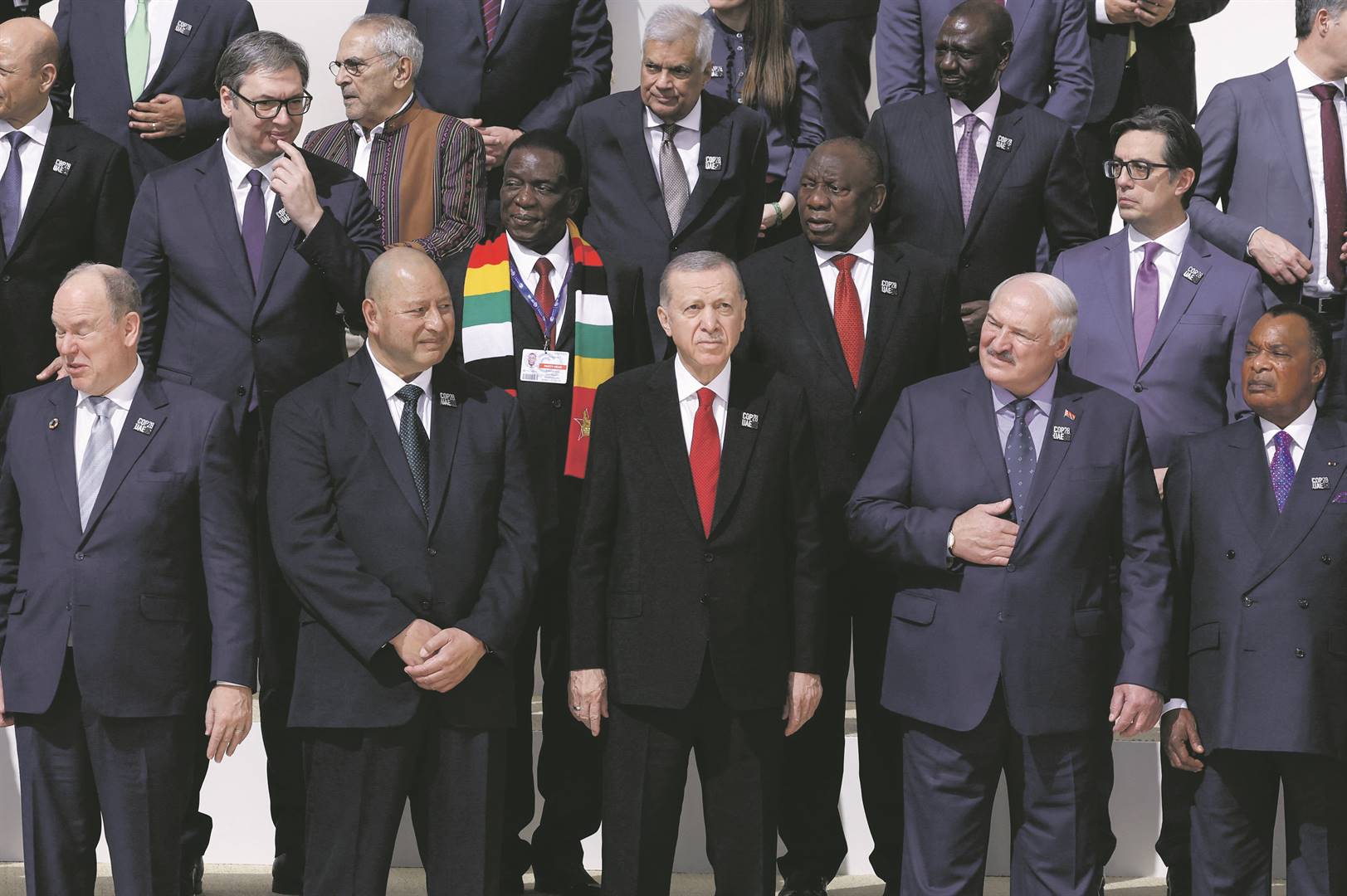
The launch of Africa’s Green Industrialisation Initiative is set to unlock businesses worth trillions of US dollars in agriculture, the blue economy and climate-smart technologies.
The Kenyan president, William Ruto, launched the private sector-driven initiative on the weekend, which was attended by heads of state of Angola, Burundi, Djibouti, Ghana, Cote d’Ivoire, Mauritania, Nigeria, Senegal and Zambia, COP28 President Dr Sultan Al Jaber, investors and captains of industry.
The Africa Green Industrialisation Initiative aims to accelerate and scale green industries and businesses across Africa promote climate mitigation and adaptation, and act as a catalyst for economic green growth on the continent.
READ: Climate change hits poor countries' GDP
The launch is a sequel to the Nairobi Declaration adopted in September when African countries committed to facilitating the launch of green industries to reduce carbon emissions. The United Arab Emirates (UAE) has put US $4.5 billion as seed funding for the Africa green investment initiative, which was also launched during the African Climate Summit in Nairobi.
Through this initiative, nearly US$2.6 billion has been allocated for green energy projects in eight African countries and will add about 1.8 GW of clean power to the African grid. Ruto said:
According to a comprehensive study by the United Nations Environment Programme (UNEP), published in September, Africa’s private sector can bolster its green agenda, drive increased GDP, higher income per capita, create tens of millions of jobs and foster collaboration between governments, businesses and local communities.
The report highlights that investment in agriculture and nature could increase productivity and minimise negative impacts on ecosystems, preventing food insecurity and biodiversity loss.
READ: Global south needs to lead electric vehicle manufacturing
Some of the approaches that could enhance productivity, the report says, include transitioning to sustainable agriculture, which currently contributes about 17% to sub-Saharan Africa’s GDP; embracing organic farming, precision agriculture and agroforestry.
It also points out that digital technologies in agribusiness offer a US$1 trillion market towards feeding the continent's growing population, estimated to reach 2.5 billion by 2050. Combatting soil erosion can have net benefits in nutrients – such as nitrogen, phosphorus and potassium – worth US$62.4 billion annually.
“Restoring nature can unlock a business value of $10 trillion and create 395 million jobs by 2030,” the report says.
The blue economy and ecotourism could be sustained through research, innovation and managing aquatic ecosystems, the report says. The resilience of the blue economy – projected to generate US$576 billion and 127 million jobs by 2063 – must be sustained in the face of overfishing, pollution, and climate change.
READ: WATCH: COP28 opens with activation of $278m loss and damage fund
With abundant solar, wind, hydro, biomass, and geothermal resources that may contribute to a 6.4% increase in GDP from 2021 to 2050, Africa can become a trailblazer in renewable energy solutions, the report says.
Ocean renewable energy, still an untapped resource for Africa, has the potential to generate between 100 to 400% of current global energy demand.
The report also makes note of the following opportunities for Africa:
- Businesses in the energy efficiency sector can provide products and services, such as lighting systems, smart buildings, and efficient industrial processes;
- An annual funding gap in climate financing of $213.4 billion offers innovative investors a chance to make an impact by building Africa’s climate resilience;
- Significant reserves of critical minerals like copper, graphite, lithium, molybdenum, nickel, zinc, bauxite, cobalt, manganese, and platinum – handled responsibly – make Africa essential for electric vehicles, solar PV cell technology and wind turbines;
- ‘Cool roof paint’ can reflect up to 95% of solar heat and the need for air conditioning and investments in clean cooking energy sources can support 900 million (resulting today in poor health and deforestation), and the African LED lighting market may almost double by 2028, reaching US$5.49 billion.
READ: UAE gives climate change funding a US$30 billion boost
The report also notes that there were more opportunities provided by the African Continental Free Trade Area, which is the biggest market in the world.
The African automotive market, the report says, is dominated by used vehicles, paving the way for businesses to thrive in vehicle recycling, remanufacturing, battery recycling, shared mobility solutions, repair and maintenance services, circular supply chain management, and training and skills development.
The fast-growing fashion and textiles sector in sub-Saharan Africa, valued at approximately US $31 billion, presented opportunities such as sustainable material sourcing, recycling, ethical manufacturing, rental and sharing models, and consumer education.
Rose Mwebaza, UNEP Director and Regional Representative for Africa, said:




 Publications
Publications
 Partners
Partners









